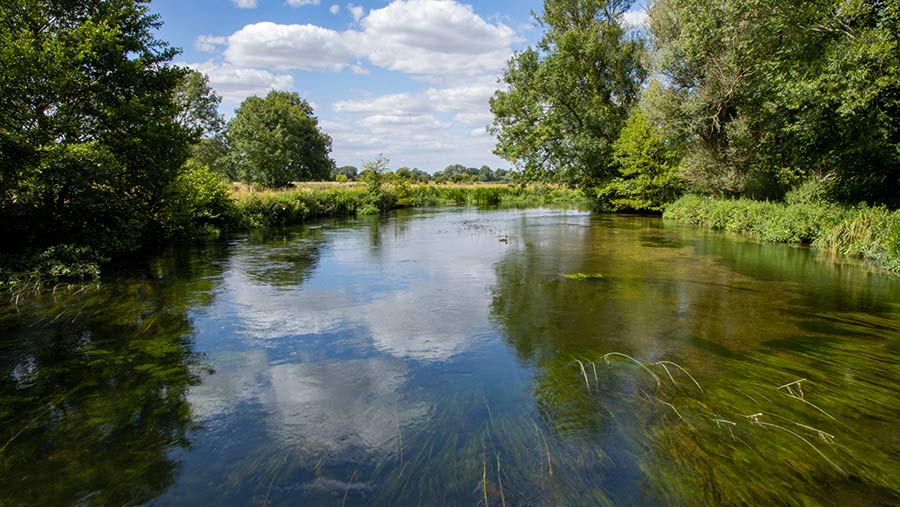Hampshire farmers join forces to trade in natural capital
 River Test © Harry Green/Adobe Stock
River Test © Harry Green/Adobe Stock More than 30 farmers in the Rivers Test and Itchen catchments in Hampshire are to join neighbouring farmers in supporting the Environmental Farmers Group in the River Avon catchment, increasing the scope for the group to trade in natural capital.
The Environmental Farmers Group (EFG) was set up in 2022 and currently has 147 “expressions of interest” from farmers, covering more than 81,000ha of farmland, with over 80 signed and paid-up members.
See also: How upland farmers are pooling resources to plug funding gap
Its aim is to co-ordinate farmers’ activities to deliver biodiversity recovery, cleaner water, and carbon capture, and then trade any net gains in the emerging natural capital markets, while also accessing funds under Defra’s Environmental Land Management scheme.
The group has already had some success, having signed a £1m deal to deliver improvements in water quality with a water company, with the benefits to be shared among members on a co-operative basis.
While the EFG also has plans to trade in biodiversty net gain and carbon offsetting, the addition of the 31 Test and Itchen farmers will be a particular boost in terms of its water quality offering, with great potential for further gains.
Track record
One of the new farmers, Joe Edwards, who manages the Middleton Estate, has a track record of delivering measurable improvements to the water quality along three miles of the River Test.
“We set out to recover the river, combining a wide range of measures, including bringing back ranunculus [a flowering water plant] and other habitats that insects will naturally thrive in,” he said.
“The result was that, when we tested the water for 300 chemicals, it showed the water is cleaner when it leaves Middleton than when it entered.”
It’s not all about the water, though, and the two catchments have many other natural habitats and species that need protecting and enhancing.
James Hewetson-Brown, for example, runs Ashe Warren Farm near the source of the Test.
“Hampshire chalk downland is famous for its wildflowers and we have encouraged their return through managing margins round the edges of our fields,” he said.
“The EFG has great potential to unlock funding to create new and better networks of these type of measures and restore wildflowers to the countryside.”
The co-operative also aims to help farmers deliver increased food security through a blend of public and private funding, which would otherwise be difficult for individual farm businesses to access.
